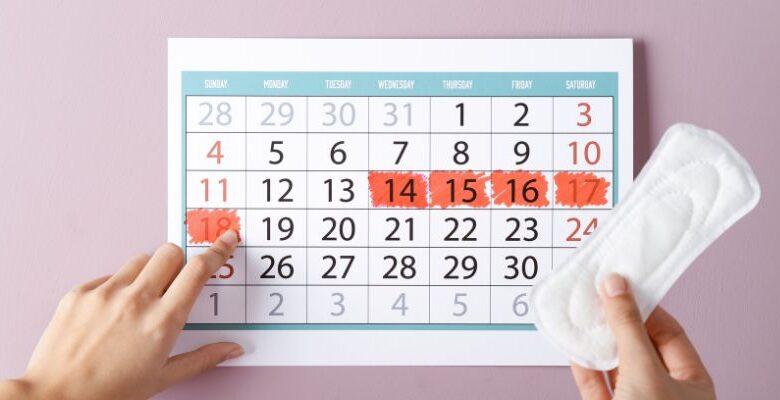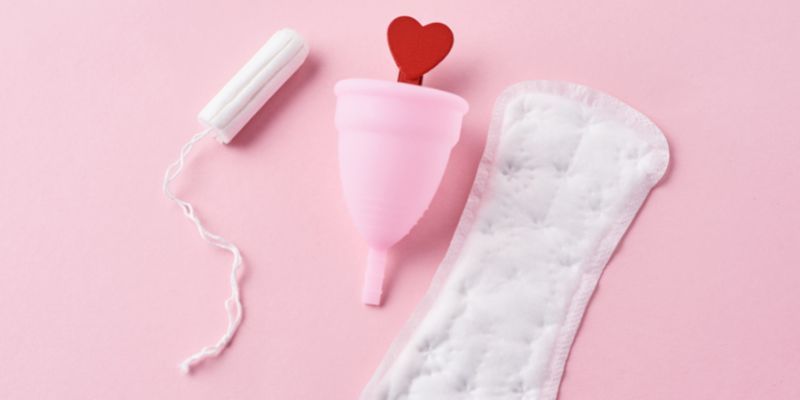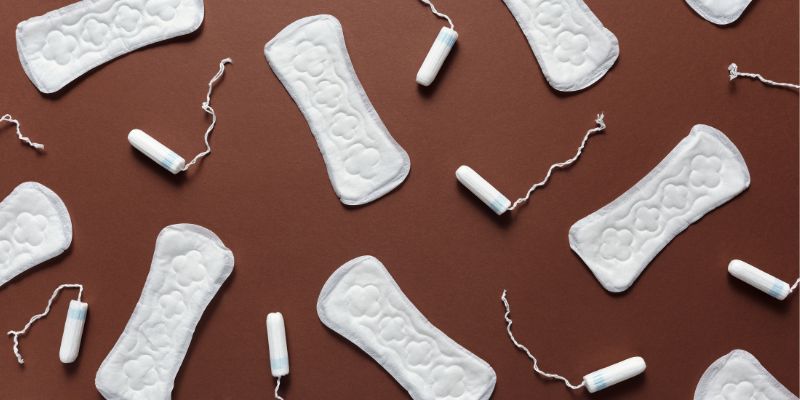
Breaking down taboos around disability and periods
Disabled people have periods – it happens. Some may have easy menstrual cycles whilst others may experience trickier periods, with heavy bleeding, abdominal pain, nausea, vomiting, dizziness, anaemia and much more – no matter what their disability or health condition.
Our writer, Emma Purcell, spoke to the disability community to find out about their experiences of having periods, including accessing contraception, sanitary products and public toilets, dealing with symptoms, having periods while using catheters, relying on support during periods and other people’s attitudes and misconceptions.
Contraception and healthcare professionals’ perceptions
Many disabled and non-disabled people use contraception to control their periods because they can be extremely heavy, painful and/or cause frequent and severe incontinence. The types of contraception used can vary depending on a person’s situation and physiology.
Unfortunately, disabled women sometimes face additional challenges when it comes to accessing contraception and medical support due to judgments and preconceptions from health professionals.
Birth control is not seen as important for disabled women
One woman told us about the benefits of an Intrauterine device (IUD), also called a coil, for her situation, but that she also received discriminatory comments from a male doctor.
“I manage much better since I had a coil fitted. I have Fibroids (non-cancerous growths that develop in or around the womb), so I needed something to prevent the awful flooding I was having to deal with.
I had a bad experience with a doctor who was meant to be fitting my replacement coil. When I turned up to have it done he asked, ‘Do you need a replacement coil?’ I said, ‘Yes please.’
He then looked me up and down and said, ‘Why, you don’t have sex?’. He had clearly made an automatic assumption that I didn’t and perhaps wouldn’t be capable, which was downright rude!”
Thankfully, before I could reply the practice manager instructed him to send me to the women’s hospital and to see him afterward. I was rather shocked, but I believe it was dealt with. I refuse to see him in the future.
Three years into having my second coil and I’ve had no cycles and I’m happy. I have checkups every three years. This will continue until I have been through menopause.”
Accessible services are needed for disabled patients with periods
Jessica, who has cerebral palsy, told us that she has had great support from health professionals helping her to access different types of contraception.
“I had very heavy periods and was put on birth control to help them. I’ve been lucky that I’ve had doctors who seem to understand things. It also helps that I’m anemic so that has pushed doctors to assist me.
But it hasn’t always been easy. First, I was put on the combined pill, despite being at risk of blood clots from sitting down. Luckily I didn’t develop anything.
I went for 15+ years without an [internal] examination because my spasticity wouldn’t allow it and there wasn’t anywhere accessible. Eventually, I was lucky to find a doctor’s office that was equipped to handle disabilities and had special stirrups.
They were able to do an exam and I chose to try the implant [a small tube that is inserted into the arm under the skin]. The implant helped my period, but it moved, which caused problems when it got tangled in my bicep muscle.
After that, I saw an OBGYN [obstetrician-gynecologist] who was awesome. She did my exam under general anesthetic and fitted an IUD. I had to have a second procedure using an active X-ray to remove the implant.
It took about six months for my body to adjust to the IUD, but it’s been the best solution I’ve tried so far.”
Accessing sanitary products

Another obstacle many disabled women face during their menstrual cycle is finding the right kind of sanitary products to fit their needs and comfort.
Depending on the level of mobility someone has or the heaviness of their periods, they may still have frequent leakages or have difficulties inserting or changing sanitary products.
Finding the right sanitary product is important when you’re disabled
Elly shared her experiences using sanitary products and her plans to find the right ones for her preteen daughter who has sensory issues:
“As a wheelchair user and coming to the end of having periods, it’s been a challenge. I don’t use any contraception to control them as I found it made them worse.
A lot of pads are designed for different positions, yet when you are sat in one position pretty much the whole time, it causes you to bleed through much quicker.
I now use washables and have them made to hold more on the area I need. I also use period knickers and I really like them. However, it’s tricky when it comes to changing the knickers as they are a much tighter fit, which can cause more pain.
For my daughter, who is coming up to puberty and has sensory issues, I’m already getting her to find a product that works for her and get her use to them now, as periods are a sensory nightmare at the best of times.”
Discovering sustainable sanitary products for disabled women
We all know that we need to do more to be environmentally friendly, and many sanitary products are not. There are ways to be more sustainable, but that’s not always an option if you’re a wheelchair user, and Luisa told us.
“I have had an IUD on/off for the past 10 years or more (I had a baby in 2018). Stopping my periods was a definite plus after I’d bleed through onto my cushion having used conventional pads. To this day, I’m still not able to get rid of the stain, even after repeated washes of the cushion.
I know that menstrual care for a full-time wheelchair user is not something that many doctors, nurses, or occupational health know anything about.
So when I wanted another solution, I ended up asking friends who are into sustainable living. They told me about cloth sanitary products. I’ve found that period underwear is great and, as someone who is genderfluid, it can even be gender-affirming too!”
Reusable Period Underwear
Reusable period underwear is a great option for those seeking an eco-friendly way to manage their periods. This type of underwear is comfortable and provides reliable protection. It’s simple to use and lets you handle your period without needing pads or tampons.
Benefits of reusable period underwear:
- Eco-friendly: You can wash and reuse them, which reduces waste.
- Comfortable: Made from soft materials for comfort throughout the day.
- Easy to use: Worn just like regular underwear.
- Independent: Manage your period without extra products.
To find out more, visit a shop that specialises in reusable period underwear. They can help you find the best style and size for you.
Difficulties with using sanitary products and feeling uncomfortable seeking support
While some disabled women are able to find the right sanitary products for them, others struggle to discover accessible ones that they can actually use themselves.
Kate told us: “I have huge problems with periods. The only products I can use are tampons alongside a pad for backup. However, many brands are stopping using plastic applicators and my wonky hands cannot use the card ones.
I have so far managed to dislocate my shoulder trying to put one in without a plastic applicator. I’ve just bought a reusable one to try, but it’s already so difficult.
I’m larger so have to stand to put a tampon in, but this causes issues itself because I slip, fall and do all manner of other things while trying to insert one.
I’m really struggling, but as I am autistic, having someone put in a tampon for me is something I can manage at the moment. I also only have one carer a day and the rest of the time my mum cares for me and I don’t want to approach the subject yet.”
Lotte also shared the difficulties of gripping sanitary products and the awkwardness of asking for help as a trans man.
“I have been on the pill since I was 13 to stop my periods due to them being heavy and me needing extra help when going to the toilet. I also have a problem with being able to grip things so using pads or tampons is extremely difficult for me.
I am also a trans man so having to deal with that is extremely dysphoria-inducing for me and it is even worse when you have to ask someone else to help you with it.”

Periods and toileting
Difficulties finding accessible toilets to change sanitary products
One person described their difficulty with accessing public toilets to change their sanitary pad.
“A struggle I find as a wheelchair user – especially when you need hoisting – is that it can be so hard to change them. I need a Changing Places toilet to be able to do so and these are few and far between.”
Using sanitary products when using a catheter
Periods can also be an extra inconvenience for some people who use urinary catheters.
Amy explained how she had to have contraceptive injections and change the type of sanitary product she uses after getting a catheter.
“I have recently been fitted with a catheter so periods have become very challenging for me. I’ve started to take the contraceptive injection to try to prevent my periods altogether.
The first injection did the opposite and I bled for three months straight. I had better success with the next one and only bled for a couple of days.
I previously used a moon [menstral] cup as I found this easier to navigate than pads or tampons, but since having my catheter it has become impossible to use.”
Another woman told us how she can have leaks during her periods with a catheter even when it is not heavy. She also shared the frustrations of using and changing sanitary products while living in bed.
“I have really struggled with my periods since becoming disabled. I had a long episode where they stopped altogether, and since restarting they have not been that heavy (luckily).
But, despite that, I find that whatever pad I use, I always leak where my urethral catheter runs onto my clothing. It is the catheter that is the issue rather than the extent of bleeding as it happens even when there is very little blood.
Before I became disabled I used cups, but I now use tampons as have to stay in bed and have no access to a toilet so changing a cup in bed or over a bedpan would be too hard.”
What are your experiences with disability and periods? Share your stories with us and our community on Facebook and Twitter @DHorizons.
By Emma Purcell
Image credit at the top: ©Pixel Shot via Canva.com
More on Disability Horizons…